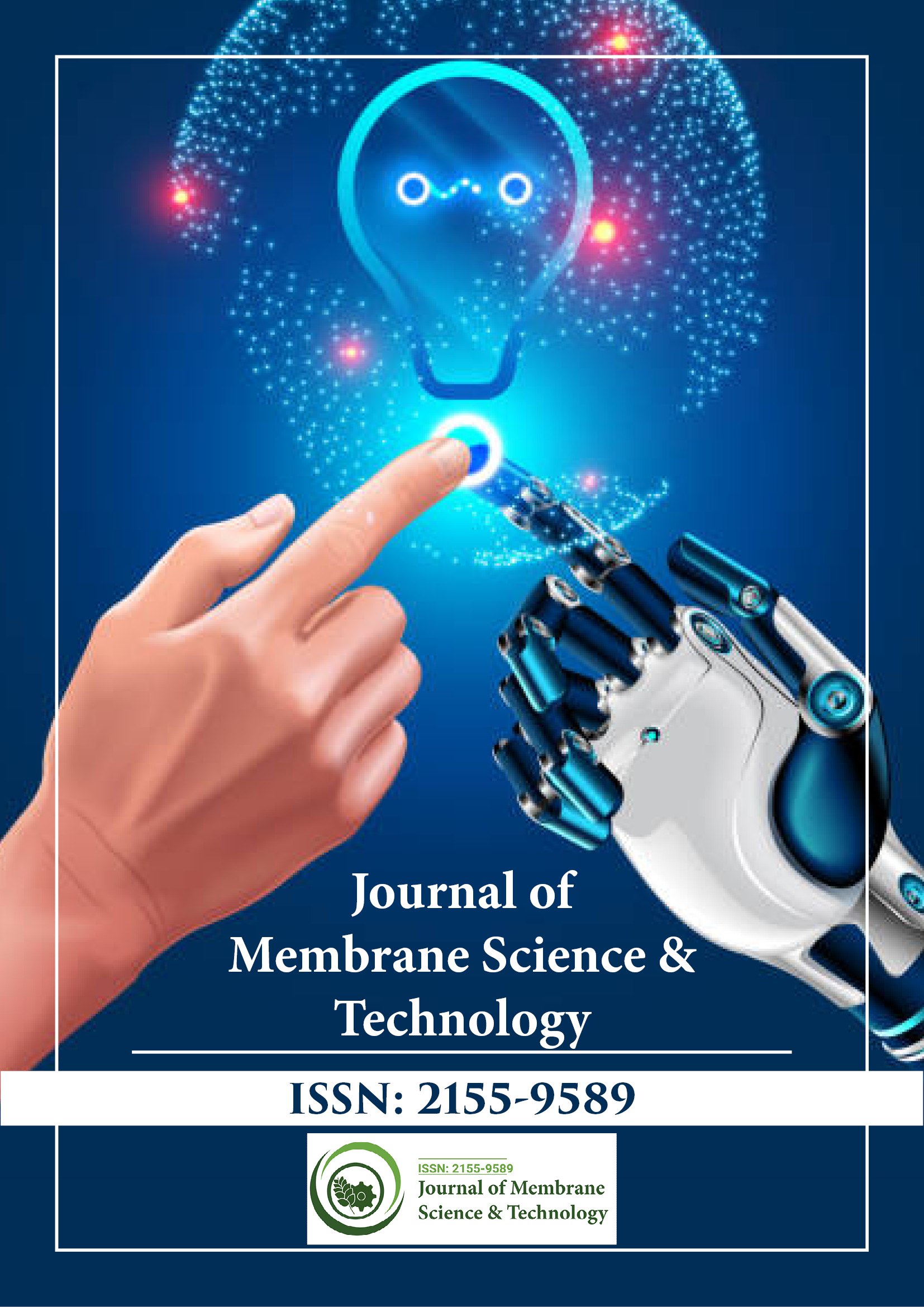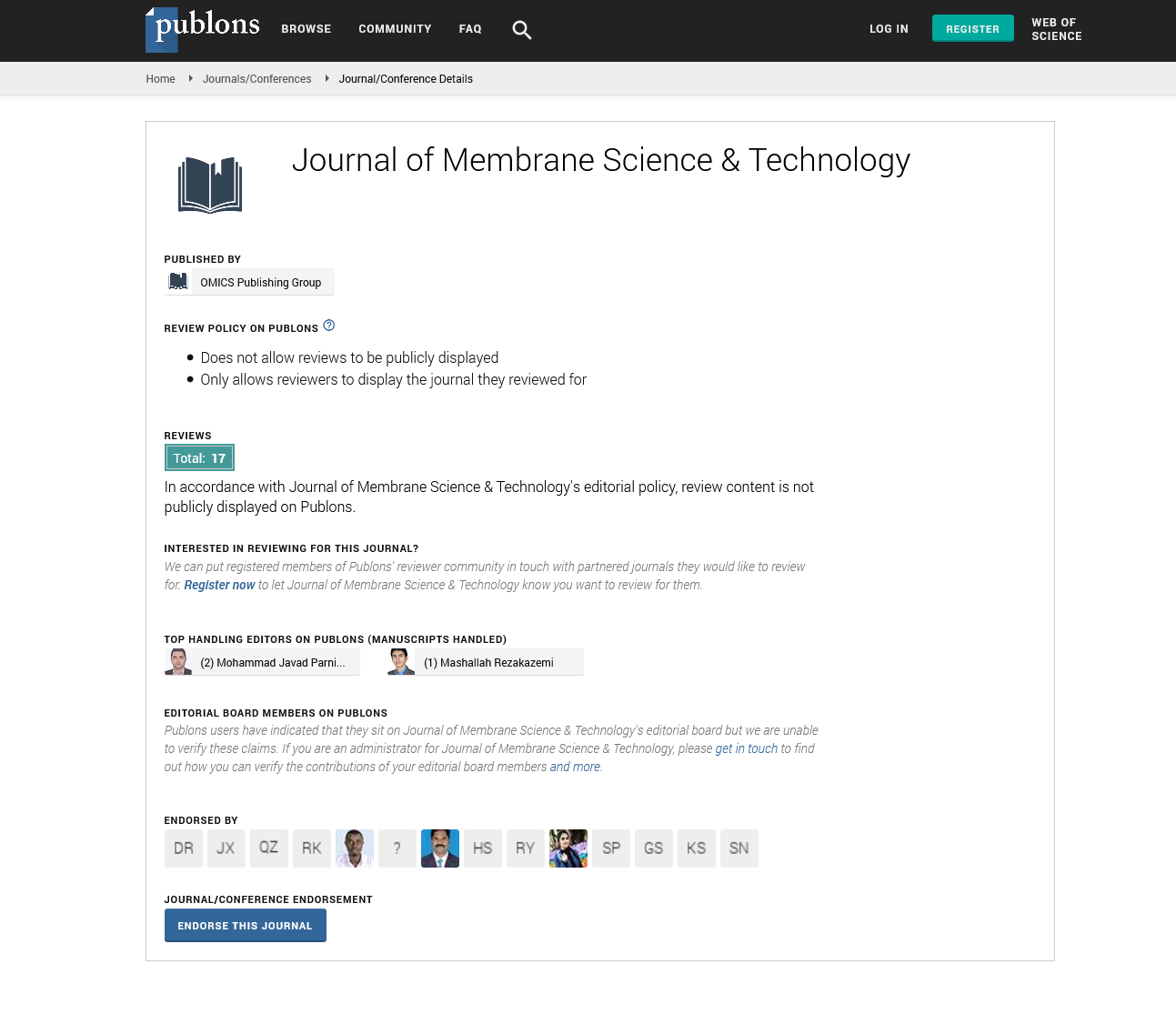Indexed In
- Open J Gate
- Genamics JournalSeek
- Ulrich's Periodicals Directory
- RefSeek
- Directory of Research Journal Indexing (DRJI)
- Hamdard University
- EBSCO A-Z
- OCLC- WorldCat
- Proquest Summons
- Scholarsteer
- Publons
- Geneva Foundation for Medical Education and Research
- Euro Pub
- Google Scholar
Useful Links
Share This Page
Journal Flyer

Open Access Journals
- Agri and Aquaculture
- Biochemistry
- Bioinformatics & Systems Biology
- Business & Management
- Chemistry
- Clinical Sciences
- Engineering
- Food & Nutrition
- General Science
- Genetics & Molecular Biology
- Immunology & Microbiology
- Medical Sciences
- Neuroscience & Psychology
- Nursing & Health Care
- Pharmaceutical Sciences
Metal-organic framework membranes for CO2 capture, biofuel purification and water desalination: A computational perspective
International Conference on Membrane Science and Technology
September 11-12, 2017 | Paris, France
Jianwen Jiang
National University of Singapore, Singapore
Keynote: J Membra Sci Technol
Abstract:
As a unique class of hybrid nanoporous materials, metal-organic frameworks (MOFs) have received tremendous interest over the last decade. The variation of metal oxides and the judicious choice of controllable organic linkers allow the pore size, volume and functionality to be tailored in a rational manner for designable architectures. MOFs thus provide a wealth of opportunities for engineering new membrane materials and have been considered as versatile candidates for many important potential applications. However, the number of MOFs synthesized to date is extremely large, thus experimental testing alone is economically expensive and practically formidable. With rapidly growing computational resources, molecular simulation has become an indispensable tool to characterize, screen, and design MOFs. Our research group has conducted comprehensive simulation studies in MOFs and their membranes for CO2 capture, biofuel purification, water desalination, etc. These systematic simulation studies will be summarized in this presentation to demonstrate that simulation at a molecular level can secure the quantitative interpretation of experimental observation, provide the microscopic insight from bottom-up, and facilitate the development of new MOF materials.
Biography :
Jianwen Jiang is an Associate Professor in the Department of Chemical and Biomolecular Engineering at the National University of Singapore. His research expertise is computational materials modeling and simulation, currently focused on membrane and nanoporous materials for energy, environmental, and pharmaceutical applications (e.g. carbon capture, water desalination, and drug delivery). He has published over 170 technical manuscripts, as well as a number of invited reviews and book chapters. He is on the Editorial Boards of Scientific Reports, Frontier in Materials, Advances in Materials Research, and Colloid and Interface Science Communications, among others.

